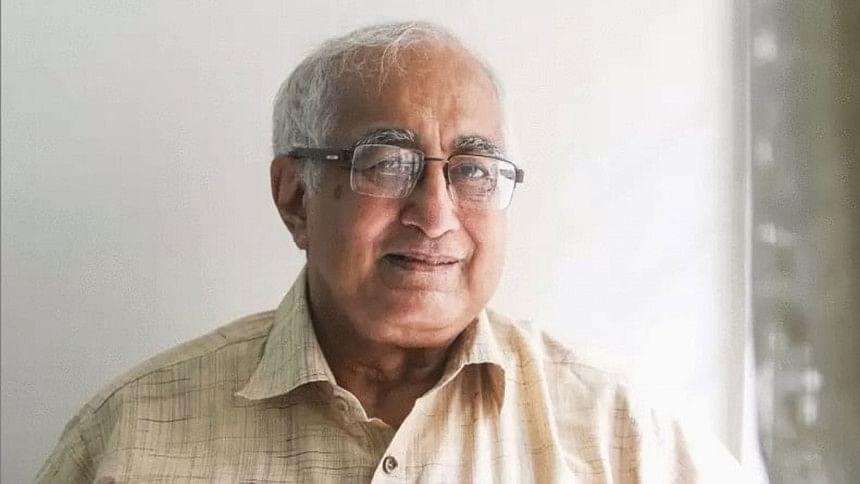JRC: A man who led by example

It was around 7 pm in Dallas, Texas on April 27 (6 am on April 28 in Dhaka), when I received a phone call from a colleague at BRAC University. I was shocked to hear the message that he conveyed: that our most respected, most admired Professor Jamilur Reza Choudhury was no more. I was deeply saddened to hear that and could not hold back my tears. I could not help but remember the brief but wonderful time that I spent while working with him. His colleagues and students would fondly call him JRC.
JRC Sir was the first Vice-Chancellor of BRAC University. The time I spent with him during this stint of four years was a most unforgettable one for me, both professionally and personally. JRC was a gem of a person. He was a scientist, a teacher, a mentor, a fountain of knowledge and wisdom, an extremely fair person, a great patriot and a perfect gentleman. Anyone who has had an encounter with him would remember him always. He built up a strong team in building the BracU in its initial years.
Whenever we sat with him to discuss and deliberate, we learned a lot about many different subjects. When dealing with colleagues and students, especially with regard to management issues, he was always fair and just. His management style was tough, but one with a human touch. He was an example of managing objectively at the same time being participatory and humane.
Once we introduced the practice of wearing identity cards by all during the time one would be on the campus. In our usual code of conduct in organisations, the Chief Executives do not wear IDs. But JRC Sir would diligently wear his ID card starting from his entry into, and exit from, the campus. He said, "If as the VC I don't wear it, many will not either. To create a value in any organisation, the CEO or people at the top should also practise what they preach. Leaders should set examples."
In the management and policy meetings where all senior people participated, I found JRC Sir steering the meetings very ably. His mannerisms and communication skills were noteworthy. He was very clear and immaculate in his deliberations. His command over Bangla and English was impeccable. He talked less and listened more. Once there was a discussion on the issue of reciting from the holy books in BracU's first convocation. The discussion was on whether verses from only the Quran or all four scriptures would be read out in the inauguration. After hearing all, JRC Sir gave the decision that verses from all four scriptures would be read out, the logic being that Bangladesh is a People's Republic and a secular state.
JRC Sir was a perfect gentleman. Whenever decisions were sought from him regarding teacher, student or staff issues, the decisions he would provide were very fair and acceptable to all parties. He considered the effect of those decisions on the affected people and took the right ones. He was analytical, thoughtful, reasonable and farsighted in his decision making.
Regarding the issue of working hours in BracU, he said that the teachers would not have a fixed, 9 to 5 hours' time because they have to run classes at different times, have to do research and library work and also have to have flexible times for consulting with the students. Sometimes teachers need to work extra hours. In addition, teachers have to be extremely earnest in conducting their classes maintaining good practices of teaching and managing time properly. However, the timing for other staff members, including administrators, security and management people, should be fixed (say 8:30-5), but when needed, they should not hesitate to commit added time. He said, "a university cannot be run as a corporate office or an NGO, it should have its own values and culture as an educational institution. In corporations and NGOs, the organisation pays the staff members, but in a university, the teachers and staff are paid by the students. So your responsibility to your students is enormous."
JRC Sir would never give judgement on any conflicting issue without listening to both sides. He would tell us, "never give judgement after hearing only one side of the story, you may not be just and fair."
One may think that these are usual characteristics of any CEO, but on the contrary, many do not practise these in their leadership and management styles. There is a lot to learn from JRC Sir's people management practices.
We will always remember him and miss him. Thank you very much, Sir, for your many invaluable lessons.
Dr Salehuddin Ahmed is the former Deputy Executive Director of BRAC, former Pro-Vice Chancellor of BRAC University, and former Managing Director of The Daily Star.

 For all latest news, follow The Daily Star's Google News channel.
For all latest news, follow The Daily Star's Google News channel. 



Comments